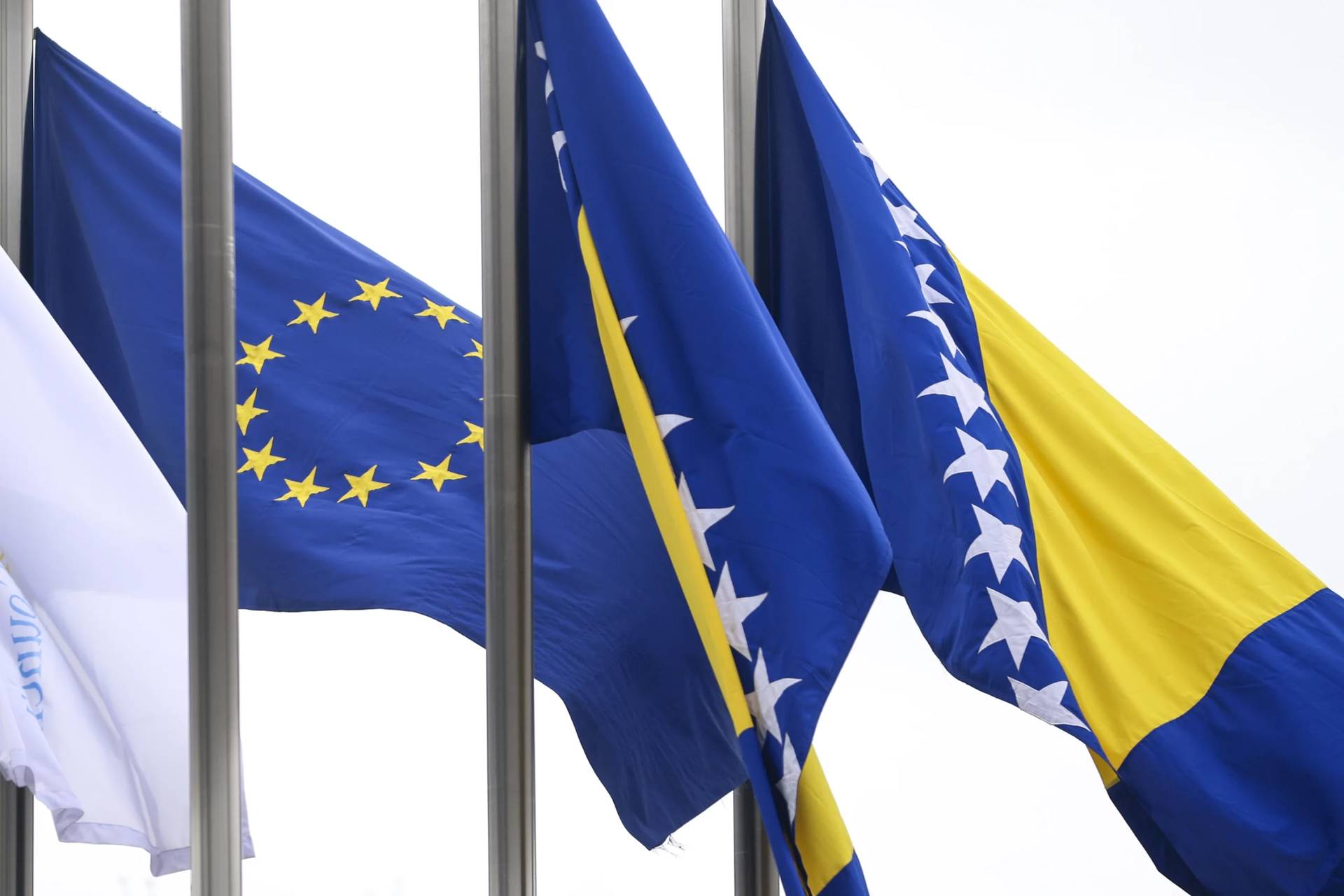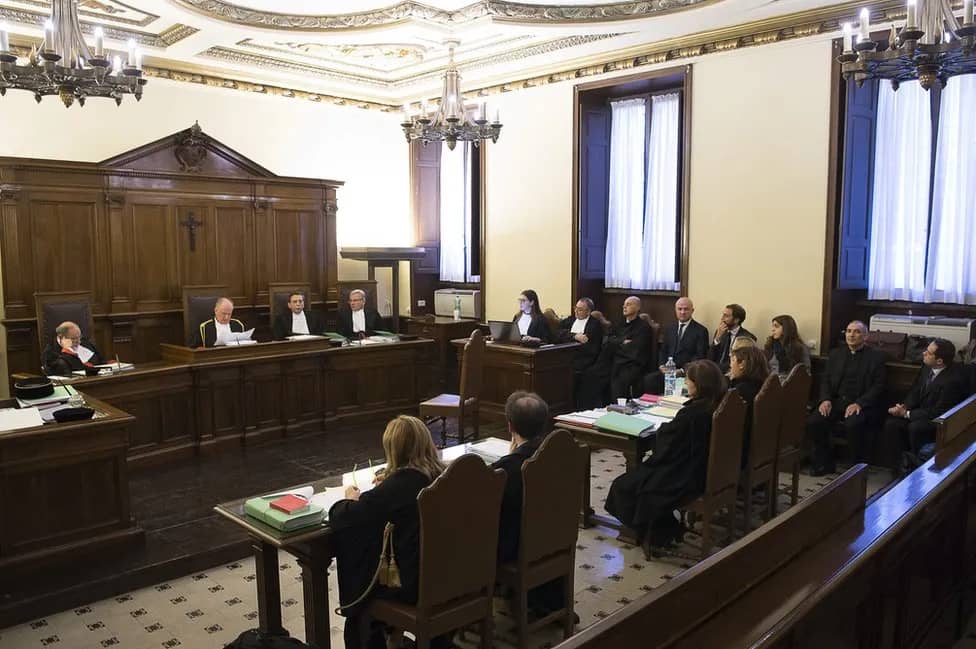A long-awaited, epic independent inquiry into Britain’s role in the US-led invasion of Iraq has issued a damning verdict on the justification for going to war, in effect agreeing with warnings about its legitimacy expressed by the Vatican and Catholic bishops at the time.
The Chilcot Inquiry — which took seven years, and at 12 volumes is three times bigger than the Bible — is a meticulous and rigorous examination of the decision-making process by the government of Tony Blair in the run-up to the March 2003 invasion, as well as its bloody aftermath.
Some 179 British service personnel died in the conflict, which ousted the dictator Saddam Hussein and led to a near-total collapse in Iraq’s government and infrastructure. Years of protracted struggles between Sunni and Shia factions fueled by insurgents from neighboring Iran and Syria followed, as extremists exploited the anarchy.
At least 150,000 Iraqis, mostly civilians, are thought to have died as result, and about a million were displaced.
Among Sir John Chilcot’s main findings:
- Britain joined the US-led invasion when peaceful options for disarmament still existed;
- Saddam Hussein posed no imminent threat;
- The legal basis for the war was “far from satisfactory”;
- The intelligence on Iraq’s weapons of mass destruction was “flawed” and should have been examined;
- The planning and prosecution of the war were “wholly inadequate”.
Although the Vatican and the bishops made no explicit reference to Catholic just war doctrine at the time, they implicitly took into account discernment criteria that go back to St Augustine and developed since. Those criteria assess the legitimacy of military action both in the run-up to war (ius ad bellum) as well as during it (ius in bello).
Among the ius ad bellum principles are that the war must have just cause, be decided by a proper authority, be undertaken for a good reason, and be a last resort. The ius in bello rules demand that the war be prosecuted using proportionate means, have a reasonable chance of success, and avoid civilian casualties.
As the US and the UK prepared to go to war in March 2003 following an impasse within the United Nations Security Council, the Vatican’s position was that the weapons inspectors should be allowed to continue their work.
Cardinal Jean-Louis Tauran, St John Paul II’s foreign minister, said at the time it had not been demonstrated that Saddam “is carrying out crimes against the world,” and that “only the United Nations Security Council can decide, on the basis of determined circumstances, that the possession of arms of mass destruction can constitute a threat to peace.”
In the UK, the then-Archbishop of Canterbury, Dr. Rowan Williams, and the then-Archbishop of Westminster, Cardinal Cormac Murphy-O’Connor, warned in a rare joint statement that “doubts still persist about the moral legitimacy, as well as the unpredictable humanitarian and political consequences, of a war with Iraq” and said not all alternatives had been exhausted.
The two archbishops in March 2003 called for all sides “to engage, through the United Nations, — fully and urgently — in a process, including weapons inspections, that could and should render the trauma and tragedy of war unnecessary.”
Placed against the just war headings, Chilcot leaves little doubt that the war was illegitimate, despite the arguments at the time from prominent US Catholic theologians such as George Weigel and Michael Novak.
On just cause, Chilcot says the British prime minister at the time, Tony Blair, overstated the threat posed by the Iraqi dictator.
“There was no imminent threat from Saddam Hussein,” finds the report. Referring to Blair’s main justification for the need for action, it concludes that “the judgements about the severity of the threat posed by Iraq’s weapons of mass destruction – WMD – were presented with a certainty that was not justified.”
On last resort, Chilcot says: “We have concluded that the UK chose to join the invasion of Iraq before the peaceful options for disarmament had been exhausted,” adding clearly: “Military action at that time was not a last resort.”
Chilcot also finds that “the strategy of containment could have been adapted and continued for some time” and that ” the majority of the Security Council supported continuing UN inspections and monitoring.”
On just authority, Chilcot rejects the claim of the UK government at the time that it was acting “to uphold the authority of the Security Council” in the face of France and Russia refusing to endorse US-UK action. Chilcot finds that “in the absence of a majority in support of military action, we consider that the UK was, in fact, undermining the Security Council’s authority”.
Although the report does not consider whether the war was legal, Chilcot damningly concludes that “the circumstances in which it was decided that there was a legal basis for UK military action were far from satisfactory.”
Turning to the invasion’s bloody aftermath, Chilcot says Blair’s planning “failed to take account of the magnitude of the task of stabilizing, administering and reconstructing Iraq.” The British were given the task of running Basra in southern Iraq, for which they were wholly unprepared.
Chilcot says Blair should have known this would happen. “Mr. Blair had been warned that military action would increase the threat from Al Qaida to the UK and to UK interests. He had also been warned that an invasion might lead to Iraq’s weapons and capabilities being transferred into the hands of terrorists.”
The report adds: “The risks of internal strife in Iraq, active Iranian pursuit of its interests, regional instability, and Al Qaida activity in Iraq, were each explicitly identified before the invasion.”
This meant that the occupation had a poor prospect of success — one of the key ius in bello principles. Because “the scale of the UK effort in post-conflict Iraq never matched the scale of the challenge,” the report finds, “the UK military role in Iraq ended a very long way from success.”
At an emotional but defiant two-hour press conference yesterday, Blair expressed sorrow and remorse at the failures, saying that he would carry the decision he had taken to go to war — the “most agonizing and momentous decision” of his time as prime minister — for the rest of his life.
“The intelligence assessments made at the time of going to war turned out to be wrong, the aftermath turned out to be more hostile, protracted and bloody than ever we imagined … and a nation whose people we wanted to set free from the evil of Saddam become instead victims of sectarian terrorism,” he told journalists, his voice catching.
“For all of this, I express more sorrow, regret and apology than you may ever know or can believe,” Blair said.
But he insisted that the decision was right, and that the world was “a better and safer place as a result”. He said the report nowhere considered the alternatives to the decision he took, and it was likely that the situation now in Syria would have been Iraq’s fate had the dictator not been removed.
“Iraq under Saddam had no chance. Iraq today has a chance,” he said.
He accepted that some people “can never forget or forgive me,” but argued that without the invasion Saddam would have “clung to power with the same deadly consequences as we see in the carnage of Syria”, where fellow Baathist dictator Assad has clung to power.
He rejected the report’s findings that there was a rush to war and its conclusion that the invasion was not a last resort. He said those who died in the war did not do so in vain, but “fought in the defining global struggle of the 21st century against the terrorism and violence” — a struggle that would eventually be won.
The key question, he said, was whether the decision he took in March 2003 was the right one, given the circumstances and information at the time. “Are more people going to suffer and die if we leave this dictator in place?” he asked, adding: “If you can’t answer the question of what the alternative would have been, you’re a commentator, not a decision-maker.”
Blair, who became a Catholic after leaving office in 2007, yesterday added that “not a day goes by” without his thinking of that decision, and it was why he spent so much time in the Middle East.
The Catechism of the Catholic Church makes clear that the evaluation of the conditions for the moral legitimacy of a war belongs in the final instance not to the Church but civil authorities.
The Chilcot Inquiry’s verdict leaves no doubt that, in the case of the British government at the time, they got it badly wrong.
















